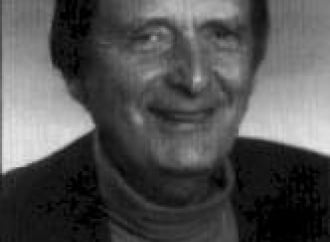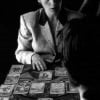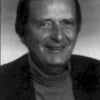The subject is nothing if not controversial. On one television show an experienced detective insists that no psychic has ever helped his department solve a crime, while another program features an equally experienced investigator who maintains that psychics are an occasionally valuable resource, citing examples from his own solved cases. Who is right? Is it a matter of science versus mysticism as some assert, or an issue of having an open mind as opposed to a closed one as others claim?
In ancient times those who sought missing persons or who attempted to uncover crimes could consult oracles or employ various other forms of divination including astrology. After dowsing became popular in the sixteenth century, certain practitioners used divining rods to track down alleged culprits. Throughout the nineteenth century, certain "sensitive" persons received information regarding crimes in their dreams, while during the heyday of Spiritualism some mediums claim to solve crimes through information provided by spirits of the dead.
Today virtually all of the old, supposedly discredited techniques are in vogue. Dorothy Allison, regarded as America's most famous psychic sleuth, at times employs astrology, while Greta Alexander sometimes gets information from her "spirit guides," Raoul and Isaiah. Dutch psychic Marinus Dykshoorn and others have plied their dowsing rods and pendulums in the supposed service of crime detection. Noreen Renier employs still another old divination technique called psychometry, by which she purportedly gets psychic impressions from objects connected with a particular person. Some psychics claim to use clairvoyance ("clear-seeing") whereby they supposedly "see" remote images and scenes as if they were viewed on a movie screen. Psychic Bill Ward even studies people's "auras" and reads the lines in their palms.
At lease on the face of it, this disparity of approach-- in which one technique seems to work about as well as another-- does not seem to provide a credible basis for psychic sleuthing. Neither do specific tests. For example the seventeenth-century French dowsing sleuth, Jacques Aymar, was extensively tested in Paris with embarrassing results: he failed to detect the guilty, and even accused those who were innocent, while inventing absurd excuses for his failures. In 1991 tests of British "police psychic" Nella Jones indicated that her ability to "psychometrize" possible murder weapons was nonexistent. Indeed, tests conducted by Los Angeles Police Department researchers, reported in the Journal of Police Science and Administration (7, no. 1 (1979): 18-25), showed that information generated by psychics was no better than chance would allow.
Retrofitting
But what about testimonials from experienced homicide detectives who have actually used psychics? Most reported successes appear to be like the one that a New Jersey police captain attributed to Dorothy Allison. Her predictions "were difficult to verify as initially given," he said. "The accuracy usually could not be verified until the investigation had come to a conclusion." Indeed, this after-the-fact matchingà³known as "retrofitting"à³is the secret behind most alleged psychic successes. For example, the statement, "I see water and the number seven," would be a safe offering in almost any case. After all the facts are in, it will be unusual if there is not some stream, body of water, or other source that cannot somehow be associated with the case. As to the number seven, that can later be associated with a distance, a highway, the number of people in a search party, part of a license plate number, or any countless other possible interpretations.
Other explanations for psychics' reputed successes include the following: (1) Some psychics exaggerate their successes, even claiming positive results in cases that were failures or that never existed. (2) Psychics may use ordinary means of obtaining information which they then present as having been psychically obtained. For example, psychics have been accused of impersonating police and even of bribery of police officers in order to gain information. In one instance the psychic, unknown to a detective, had actually been briefed on the case by others. Shrewd psychics can brief themselves by studying newspaper files or area maps, and some make use of the fortune tellers technique of "cold reading" ( a technique in which the psychic fishes for information while watching the listener's face for reactions that suggest correctness or error.) (3) Another potential explanation for psychic's apparent successes is faulty recollection of what was actually said. The fallibility of memory is well known, and many stories of psychic success get better as they are told and retold. (4) Many psychics deal in vague generalities: for example, one psychic reported perceiving, "the names 'John' or 'Joseph' or something like that." (5) And there are social and psychological factors that may influence people to accept the accuracy of information. Obviously their own belief system will have an effect.
These factors--combined with the ever-present technique of retrofitting-- can make a "psychic" of almost anyone. The result is like painting the bullseye around the arrow after it has been shot. Some credulous police officers even help the psychic in the reinterpretation necessary to convert a failure into an apparent "hit." For example, in one case when there was no nearby church as had been predicted, property owned by a church was counted as fitting the criterion.
The Bottom Line
Except in the extremely rare case in which a psychic was actually involved in the crime or had apparently received secret information (as from a tip), psychics rarely lead police to concealed bodies or unknown assailants. Of course they may use their own logical skills, or they may benefit from luck or perseverance, but there is no credible scientific evidence that psychic power ever solved a crime. Instead, crimes are invariably solved by police who search crime scenes, interview witnesses, and perform all of the myriad tasks necessary to locate a missing person or to convict a criminal.
Common sense suggests that if psychics really had the powers they claim then they would long ago have identified the "Unabomber" or have discovered the remains of missing Teamster Jimmy Hoffa. If they cannot accomplish such missions, how much more telling is their collective inability to do so.
Actually, the case against psychics is worse than just their inability to provide information that actually solves crimes. A far more serious problem exists with regard to the wasted resources of police departments who expend precious time and human activity in following up on a psychic's meaningless "clues." In one instance, the Nutley, New Jersey, police spent the whole of an afternoon in digging up a drainage ditch that Dorothy Allison mistakenly thought contained a missing boy. In another case, the fire department pumped the water from the flooded basement of an abandoned building in a fruitless search for a boy's remains that eventually were discovered across town. Even worse, psychics have wrongfully accused persons of committing crimes, a memorable example being that of Peter Hurkos, "the man with the radar brain," who mistakenly identified an innocent man as the notorious Boston Strangler. These examples answer the question that is often asked by those who defend the use of psychics, "what harm can it do?" Another argument defenders use is that, on occasion, a psychic's pronouncements prompted further search efforts, resulting in the discovery of the missing person's body, even though the psychic did not actually identify the location. But surely police should not have to rely on psychics to urge them to do more thorough work.
In brief, knowledgeable police officials resist the temptation to employ psychics. They know that psychic claims lack any scientific verification and that, in fact, psychics do not solve crimes. No longer should police solve crimes and let publicity-seeking occult pretenders take the credit.
____________
Joe Nickell is investigative columnist for SKEPTICAL INQUIRER magazine and author of Psychic Sleuths: ESP and Sensational Cases
In ancient times those who sought missing persons or who attempted to uncover crimes could consult oracles or employ various other forms of divination including astrology. After dowsing became popular in the sixteenth century, certain practitioners used divining rods to track down alleged culprits. Throughout the nineteenth century, certain "sensitive" persons received information regarding crimes in their dreams, while during the heyday of Spiritualism some mediums claim to solve crimes through information provided by spirits of the dead.
Today virtually all of the old, supposedly discredited techniques are in vogue. Dorothy Allison, regarded as America's most famous psychic sleuth, at times employs astrology, while Greta Alexander sometimes gets information from her "spirit guides," Raoul and Isaiah. Dutch psychic Marinus Dykshoorn and others have plied their dowsing rods and pendulums in the supposed service of crime detection. Noreen Renier employs still another old divination technique called psychometry, by which she purportedly gets psychic impressions from objects connected with a particular person. Some psychics claim to use clairvoyance ("clear-seeing") whereby they supposedly "see" remote images and scenes as if they were viewed on a movie screen. Psychic Bill Ward even studies people's "auras" and reads the lines in their palms.
At lease on the face of it, this disparity of approach-- in which one technique seems to work about as well as another-- does not seem to provide a credible basis for psychic sleuthing. Neither do specific tests. For example the seventeenth-century French dowsing sleuth, Jacques Aymar, was extensively tested in Paris with embarrassing results: he failed to detect the guilty, and even accused those who were innocent, while inventing absurd excuses for his failures. In 1991 tests of British "police psychic" Nella Jones indicated that her ability to "psychometrize" possible murder weapons was nonexistent. Indeed, tests conducted by Los Angeles Police Department researchers, reported in the Journal of Police Science and Administration (7, no. 1 (1979): 18-25), showed that information generated by psychics was no better than chance would allow.
Retrofitting
But what about testimonials from experienced homicide detectives who have actually used psychics? Most reported successes appear to be like the one that a New Jersey police captain attributed to Dorothy Allison. Her predictions "were difficult to verify as initially given," he said. "The accuracy usually could not be verified until the investigation had come to a conclusion." Indeed, this after-the-fact matchingà³known as "retrofitting"à³is the secret behind most alleged psychic successes. For example, the statement, "I see water and the number seven," would be a safe offering in almost any case. After all the facts are in, it will be unusual if there is not some stream, body of water, or other source that cannot somehow be associated with the case. As to the number seven, that can later be associated with a distance, a highway, the number of people in a search party, part of a license plate number, or any countless other possible interpretations.
Other explanations for psychics' reputed successes include the following: (1) Some psychics exaggerate their successes, even claiming positive results in cases that were failures or that never existed. (2) Psychics may use ordinary means of obtaining information which they then present as having been psychically obtained. For example, psychics have been accused of impersonating police and even of bribery of police officers in order to gain information. In one instance the psychic, unknown to a detective, had actually been briefed on the case by others. Shrewd psychics can brief themselves by studying newspaper files or area maps, and some make use of the fortune tellers technique of "cold reading" ( a technique in which the psychic fishes for information while watching the listener's face for reactions that suggest correctness or error.) (3) Another potential explanation for psychic's apparent successes is faulty recollection of what was actually said. The fallibility of memory is well known, and many stories of psychic success get better as they are told and retold. (4) Many psychics deal in vague generalities: for example, one psychic reported perceiving, "the names 'John' or 'Joseph' or something like that." (5) And there are social and psychological factors that may influence people to accept the accuracy of information. Obviously their own belief system will have an effect.
These factors--combined with the ever-present technique of retrofitting-- can make a "psychic" of almost anyone. The result is like painting the bullseye around the arrow after it has been shot. Some credulous police officers even help the psychic in the reinterpretation necessary to convert a failure into an apparent "hit." For example, in one case when there was no nearby church as had been predicted, property owned by a church was counted as fitting the criterion.
The Bottom Line
Except in the extremely rare case in which a psychic was actually involved in the crime or had apparently received secret information (as from a tip), psychics rarely lead police to concealed bodies or unknown assailants. Of course they may use their own logical skills, or they may benefit from luck or perseverance, but there is no credible scientific evidence that psychic power ever solved a crime. Instead, crimes are invariably solved by police who search crime scenes, interview witnesses, and perform all of the myriad tasks necessary to locate a missing person or to convict a criminal.
Common sense suggests that if psychics really had the powers they claim then they would long ago have identified the "Unabomber" or have discovered the remains of missing Teamster Jimmy Hoffa. If they cannot accomplish such missions, how much more telling is their collective inability to do so.
Actually, the case against psychics is worse than just their inability to provide information that actually solves crimes. A far more serious problem exists with regard to the wasted resources of police departments who expend precious time and human activity in following up on a psychic's meaningless "clues." In one instance, the Nutley, New Jersey, police spent the whole of an afternoon in digging up a drainage ditch that Dorothy Allison mistakenly thought contained a missing boy. In another case, the fire department pumped the water from the flooded basement of an abandoned building in a fruitless search for a boy's remains that eventually were discovered across town. Even worse, psychics have wrongfully accused persons of committing crimes, a memorable example being that of Peter Hurkos, "the man with the radar brain," who mistakenly identified an innocent man as the notorious Boston Strangler. These examples answer the question that is often asked by those who defend the use of psychics, "what harm can it do?" Another argument defenders use is that, on occasion, a psychic's pronouncements prompted further search efforts, resulting in the discovery of the missing person's body, even though the psychic did not actually identify the location. But surely police should not have to rely on psychics to urge them to do more thorough work.
In brief, knowledgeable police officials resist the temptation to employ psychics. They know that psychic claims lack any scientific verification and that, in fact, psychics do not solve crimes. No longer should police solve crimes and let publicity-seeking occult pretenders take the credit.
____________
Joe Nickell is investigative columnist for SKEPTICAL INQUIRER magazine and author of Psychic Sleuths: ESP and Sensational Cases














